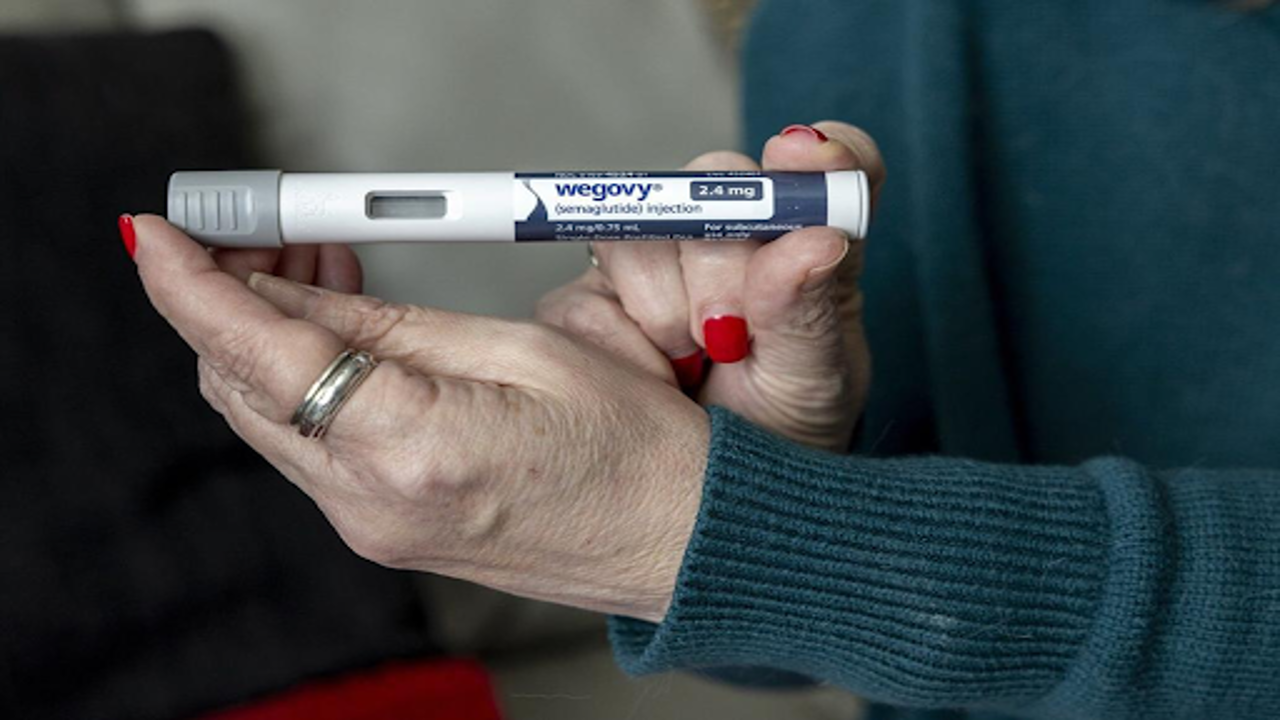
Donna Cooper holds up a dosage of Wegovy, a drug used for weight loss, at her home, March 1, 2024, in Front Royal, Va. (AP Photo/Amanda Andrade-Rhoades, The Canadian Press File)
In recent years, many people flocked to popular weight-loss drugs like Ozempic and Wegovy, eager to shed pounds. But for Danielle Griffin, a 38-year-old IT worker from New Mexico, accessing these medications wasn’t the challenge. With a prescription in hand, her pharmacy stocked the drugs, and her insurance covered most of the monthly cost, leaving her to pay just $25 to $50.
The real struggle for Griffin, however, wasn’t obtaining the drugs—it was realizing that they weren’t as effective for her as they were for others.
“I’ve been on Wegovy for a year and a half, and I’ve only lost 13 pounds,” Griffin said, despite maintaining a healthy diet, drinking plenty of water, and exercising regularly. “I’ve followed everything as recommended, but the results have been discouraging.”
In clinical trials, patients using Wegovy or another obesity drug, Mounjaro, typically lost between 15% to 22% of their body weight, with some shedding as much as 50 pounds or more. However, up to 15% of participants experienced little to no weight loss—losing less than 5% of their body weight.
Now that millions of people have tried these medications, obesity specialists are finding that as many as 20% of users—about one in five—may not respond well to the drugs. This is a lesser-known but important outcome of the growing use of obesity medications, doctors say, and they caution patients not to expect uniform results.
“Different people respond differently to these treatments,” explained Dr. Fatima Cody Stanford, an obesity expert at Massachusetts General Hospital.
The drugs, known as GLP-1 receptor agonists, work by mimicking a hormone in the body called glucagon-like peptide 1. Weight loss is influenced by factors like genetics, hormones, and how the brain regulates energy. Certain medical conditions, such as sleep apnea, or medications like antidepressants, steroids, and contraceptives, can also hinder weight loss efforts, said Dr. Stanford.
“This is a disease that originates in the brain, and not everyone has the same underlying cause,” she said.
For many, the expectation is that the drugs will lead to rapid weight loss. So when the scale doesn’t reflect the hoped-for results, it can be a tough blow.
“It’s disappointing for many patients,” said Dr. Katherine Saunders, an obesity expert at Weill Cornell Medicine. “The expectations are so high that when the weight doesn’t come off as anticipated, it can be devastating.”
Griffin, who has struggled with obesity since childhood, had hoped Wegovy would help her lose 70 pounds. While the medication curbed her appetite and reduced her risk of diabetes, her weight barely budged.
“It’s been an emotional roller coaster,” she shared. “You want it to work like it does for others.”
These medications are typically used alongside lifestyle changes, such as diet and exercise. It’s usually clear within a few weeks whether a patient will respond, with weight loss often beginning shortly after treatment starts. However, some patients don’t see results, and side effects like nausea and vomiting can lead to discontinuing the drug.
But that doesn’t mean all hope is lost, said Dr. Jody Dushay, an endocrine specialist at Beth Israel Deaconess Medical Center.
“I tell my patients that it’s not over,” she said. “There are other options.”
For Griffin, switching from Wegovy to Zepbound, which targets an additional hormone pathway, has shown some promise. After three months, she has lost 7 pounds. “I’m hoping it’s a steady, gradual process,” she said.
For others, older weight-loss medications or changes to diet, sleep, exercise, and stress management may be more effective. Finding the right approach often requires working closely with a doctor who specializes in obesity treatment.
“Obesity is a complex condition that needs a comprehensive treatment plan,” said Dr. Saunders. “If one approach doesn’t work, there are always alternatives.”















